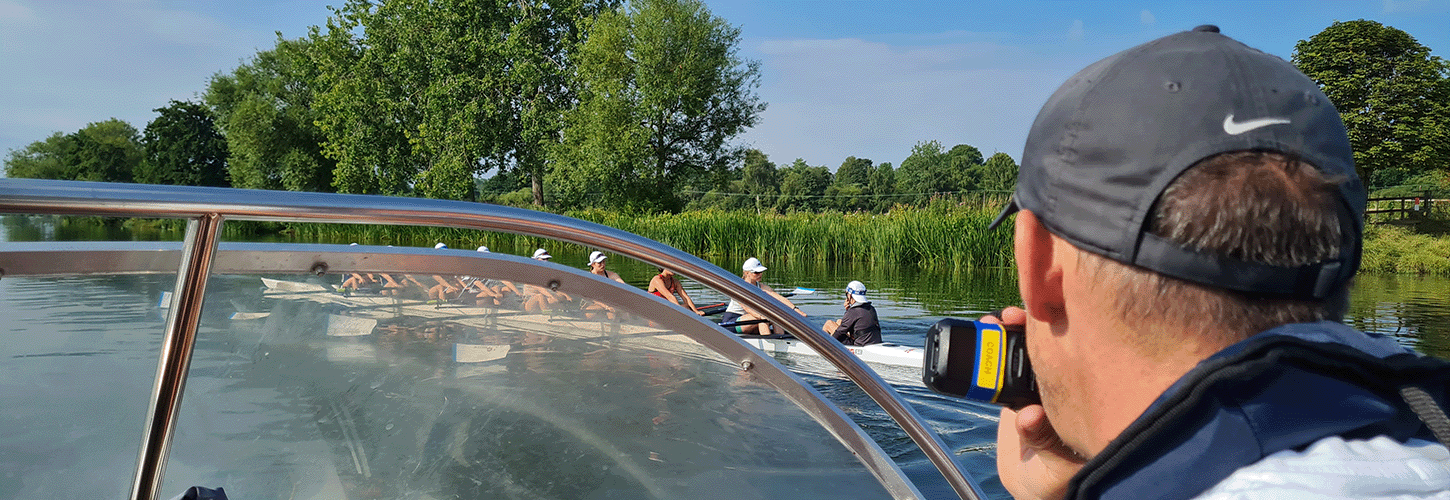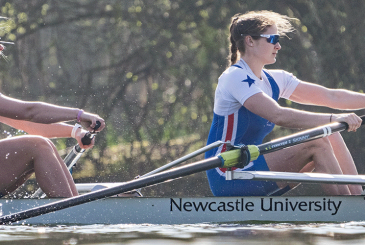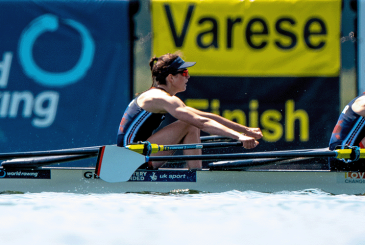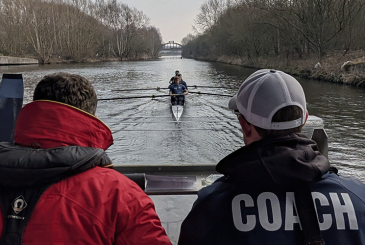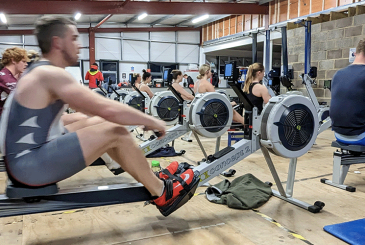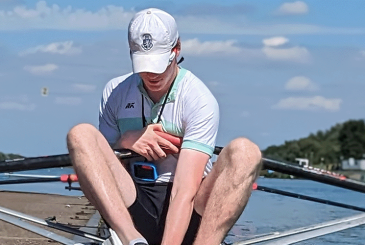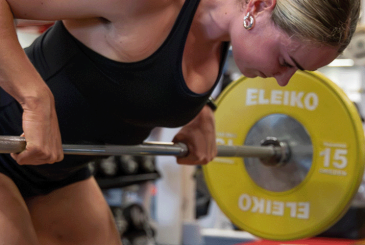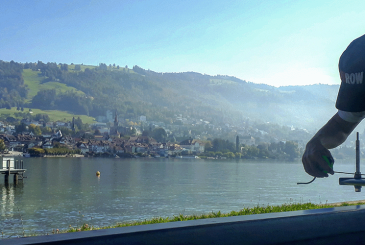How do you get better at coaching, or anything for that matter? If you think back on anything you’ve learned to do, what did you do that helped you to get better at it? What really accelerated your learning and what got in the way or slowed you down? British Rowing’s Coach Developers George Williams (Pathways) and Doug MacDonald (Olympic Pathway) discuss some common answers to these important questions.
In our work as coach developers, we frequently ask coaches these questions. And we find that most of their responses usually fit in with one of the following five concepts set out by Phil Race in his book Making Learning Happen.
- Wanting to learn: it’s much easier to learn something – such as how to move a boat effectively – if you really want to learn about it.
- Needing to learn: to achieve a goal you’ve set.
- Learning by doing: sport and coaching are ‘doing things’, so you learn as you coach
- Learning from feedback: from someone else, from how the crew responds, from watching another coach at work, from another sport, or from reading or discussing.
- Making sense of your experiences: getting your head around what, how and why things happened the way they did.
As shown in the diagram below, these factors are hierarchical – starting with wanting to learn, and then spreading out like ripples in a pond to making sense of your experiences.
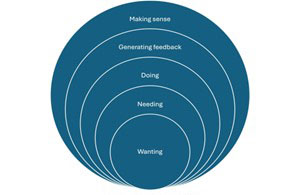
Doug’s thoughts
So, given this is how coaches often describe how they learn best, what can we do in our clubs and programmes to ensure that not only the athletes are continuing to develop but also our very important coaches? Here are a few of my thoughts:
Consider Phil Race’s ideas
Look through the five concepts above and consider how often coaches get those opportunities or feel able to do those things. What do they want to learn about? What do they need to learn about? How can they learn by doing? How can we help them to generate feedback not just about their athletes but also about their own practice? And how can we help them to make sense of their experiences?
Be a critical friend and find a critical friend
A critical friend is someone who is invested in you, cares about you, believes in you, but is also able to offer you some positive challenge or difference, and suggest new ideas or ways of doing things.
Could you set up coaching ‘pods’ or groups where groups of coaches meet up every so often to chat about their coaching, share challenges and look for new ideas? If you’re struggling to find somebody, why not reach out to British Rowing’s Learning, Education and Development team at [email protected] who could help to set you up with a buddy/critical friend in your region.
A good coach needs to develop at least as fast as their athletes
I didn’t say this (sadly!) but it’s an idea we use lot with our Olympic Pathway coaches and encourage coaches to think about. We want athletes who are developing fast so what are we doing to ensure that we’re learning equally quickly?
George’s thoughts
Is the environment a place that fosters learning?
Coaches are like anyone else who is learning. Take yourself back to the last time you did something new or you were doing something familiar to you, but you had a lightbulb moment. What was it about those situations that allowed that to happen?
You probably felt valued, supported and welcomed. It is also likely that you were enjoying yourself, but felt appropriately challenged. You would feel comfortable to ‘have a go’, and safe enough that if it didn’t work ‘that was OK’ and positive learning could still happen from that.
Have a chat with other members of your club, including the coaches and share your ‘lightbulb moment’ stories. What was it about those circumstances that helped that happen? Is that something you already do? Does it help the coaches, or could you do it differently?
‘Rome wasn’t built in a day’
This well-known saying applies rather well to coach development. Does the environment your coaches are developing in foster long-term growth over medals and immediate success? How well do you understand what is needed to build ‘Rome’ for the coaches in your club? For instance, do you understand their emotional, social, psychological, physical and cognitive needs (we are all different)? How do you respond when something doesn’t quite go to plan? Rome could equally be burned in a day!
Next time you are in that situation, replay what happened and put yourself in the coach’s position. Would the words used motivate or demotivate you? Would they feel judgemental? Or would they make you feel that you had the autonomy to explore the situation constructively and with support. If you could rewind and have that moment again… that is OK. Model growth behaviours and let the coach know. Every day is a school day!
Closing thoughts
If you have read this, you are already invested in the development of coaches! Great coaches make such a positive difference to the experience as well as the performance of rowers and can be the difference between a rower staying or leaving the sport. They are such a valuable investment.
If you would like to know more about what you can do to help create an excellent environment for coaches to develop or even explore the possibility of a coach developer working with your club to do this, then please contact British Rowing’s Coach Developer Team by emailing [email protected].
Photo: Doug MacDonald


